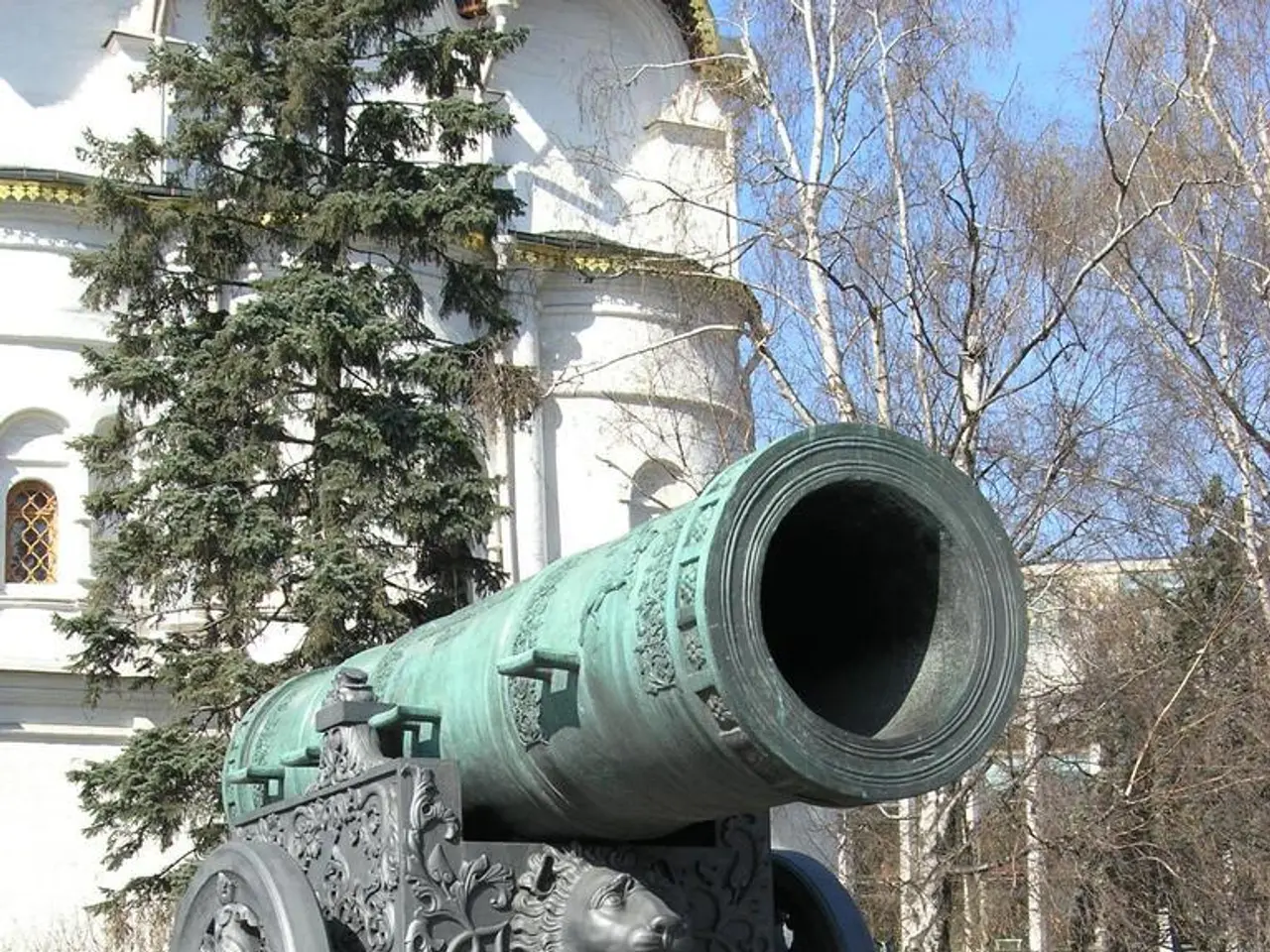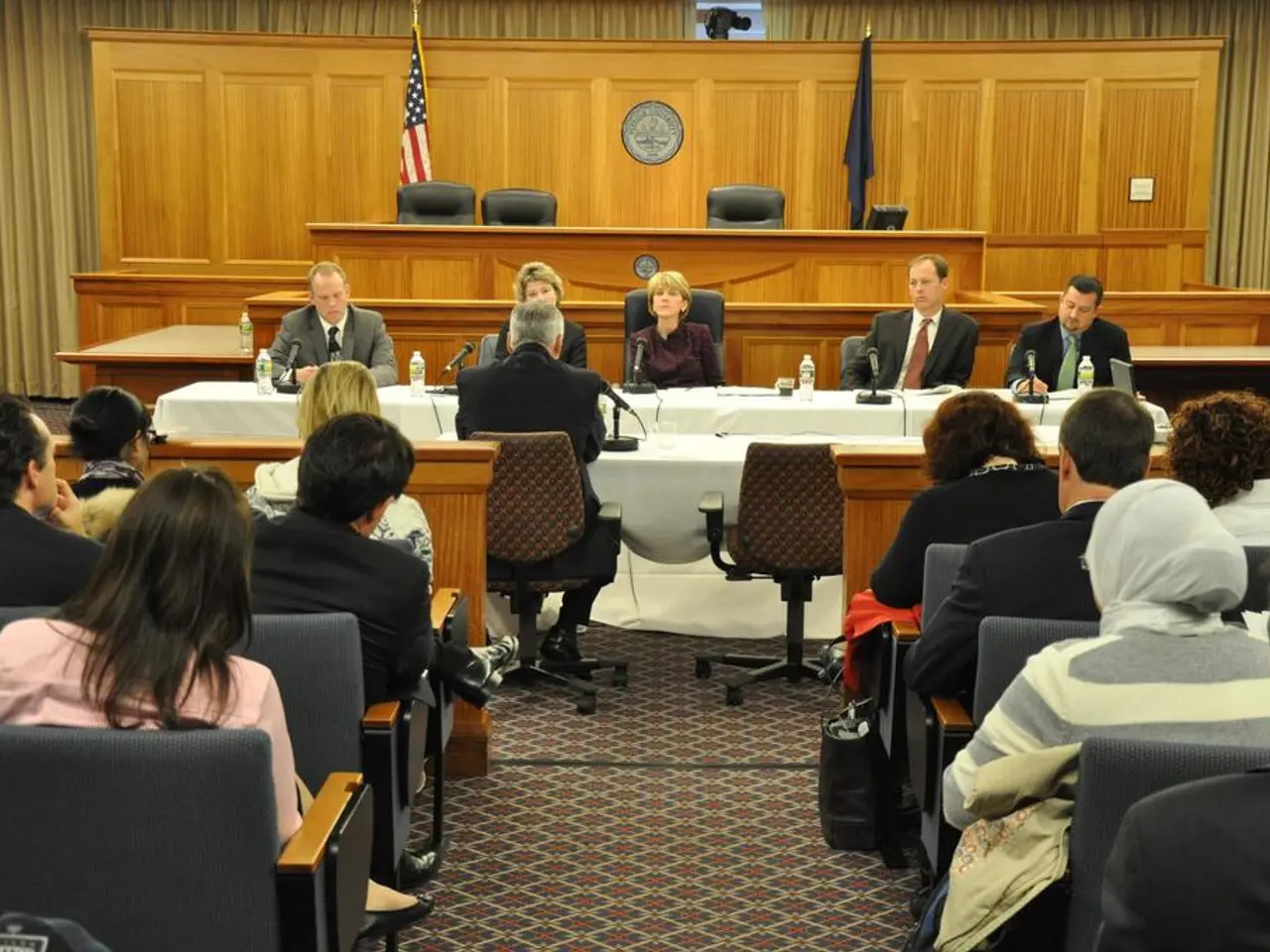Union intensifies push for mandatory enlistment - majority favouring the measure
Germany Mulls Over Bringing Back Conscription in Face of Mounting Threats
With the escalating security concerns emanating from Russia and NATO pushing harder on its member states, Germany is embroiled in a heated debate centered around reinstating compulsory military service, more commonly known as conscription. Let's delve into the key points and political viewpoints associated with this ongoing discussion:
Present Scenario and Government Plans
The German armed forces, Bundeswehr, arguably fall short of the necessary personnel, necessitating around 60,000 additional soldiers to meet NATO objectives and fulfill national defense requirements[1][2]. Defense Minister Boris Pistorius from the SPD is advocating a new legislation primarily geared towards boosting voluntary military service by augmenting remuneration and living conditions. However, he envisages incorporating provisions for reinstating conscription if voluntary recruitment proves insufficient[1][5]. The plan encompasses cultivating a substantial reserve force of approximately 200,000 soldiers to bolster the Bundeswehr's readiness[1].
Political Party Stances
- The right-wing CDU (Christian Democratic Union), the ruling party, openly champions the return of conscription as part of a broader militarization drive[1][3].
- The SPD (Social Democratic Party) exhibits internal discord on the matter: aspiring party leader, Lars Klingbeil, advocates for preparing for potential conscription, while parliamentary group leader Matthias Miersch opposes introducing mandatory service during the present legislative period. The SPD plans to settle its position at an upcoming party summit[1].
Strategic and Geopolitical Context
- NATO has bolstered troop and equipment objectives for Germany as part of its collective defense strategy in defense against the perceived threat from Russia, which has intensified calls for militarization across Europe[2].
- The Bundeswehr’s inability to attain recruitment goals solely through voluntary enlistment propels the likelihood of Germany reintroducing conscription to fulfill NATO commitments and safeguard national defense[2][4].
- This move could be viewed as a response not just to the manpower deficit, but to the evolving security landscape in Europe following rising tensions with Russia[1][2].
Potential Consequences
- Reintroducing conscription may considerably beef up the Bundeswehr's size and readiness, providing a viable solution for the current personnel shortage.
- It could also signify a transformation in Germany's post-Cold War defense strategy, inching towards embracing mandatory service facets to address strategic imperatives.
- Politically, this issue could exacerbate divisions within and between parties, particularly within the SPD, and might emerge as a focal point in forthcoming elections and party conferences.
- Financially and socially, the costs would increase owing to the need to support a bigger military force and steer public opinion concerning compulsory service.
In essence, Germany is weighing the possibility of reintroducing conscription in response to NATO expectations and the strategic threat posed by Russia, with the government aiming for a delicate balance between heightening voluntary recruitment and challenging potential conscription measures. The CDU advocates this stance openly, while the SPD remains divided, with a final decision on the horizon[1][2][3][4][5].
- The ongoing debate in Germany about reinstating conscription is closely linked to war-and-conflicts, as the country grapples with mounting threats from Russia and the need to meet NATO objectives.
- This policy-and-legislation issue, centering on mandatory military service, is a significant part of the wider politics landscape, with political parties like the CDU pushing for its return and the SPD exhibiting internal splits over the matter. Furthermore, it is also linked to general-news events such as the evolving security landscape in Europe and NATO's collective defense strategy.








